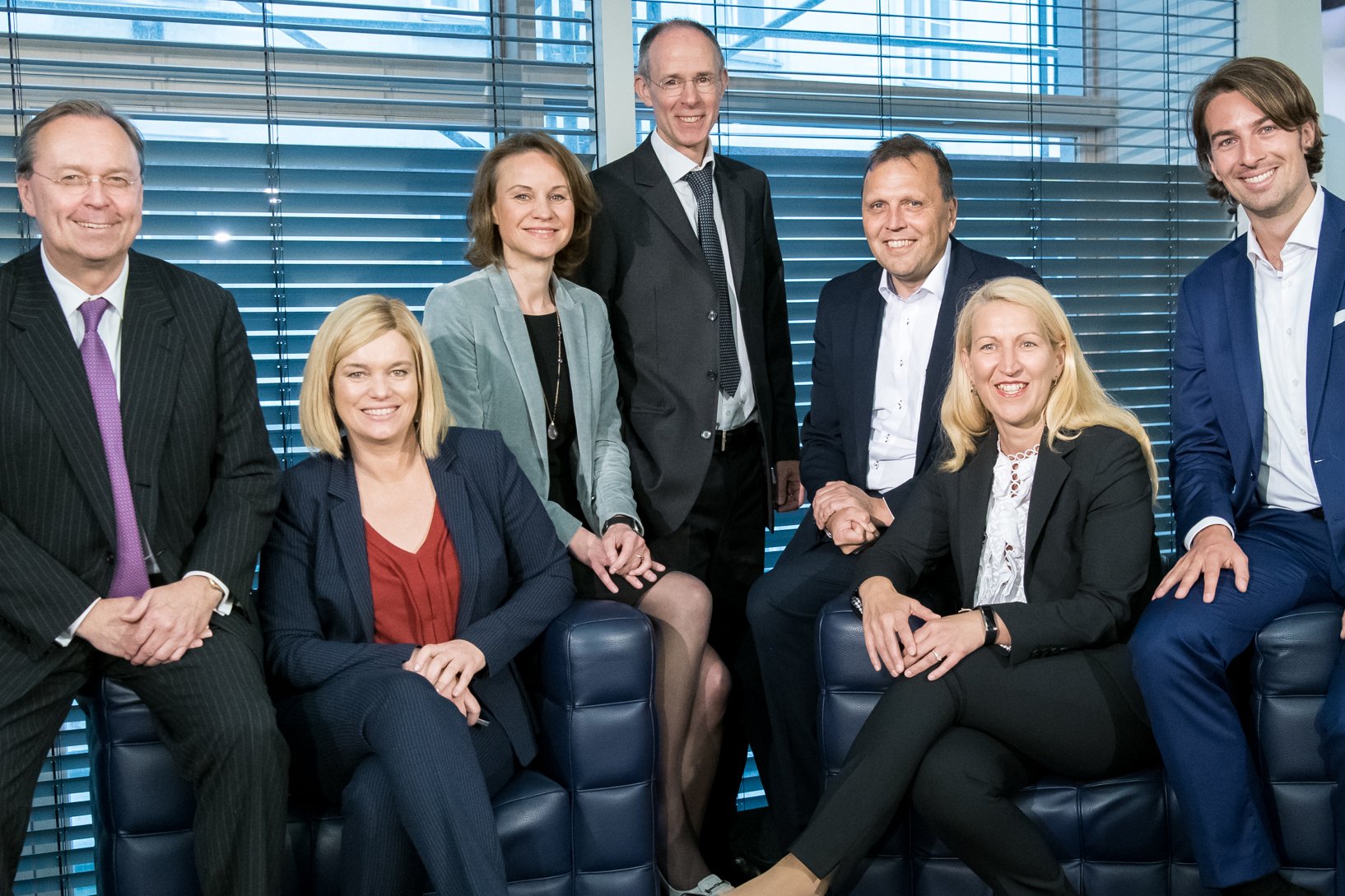On Tuesday, 2 June 2019, the commercial law firm Binder Grösswang held its latest discussion in the series Binder Grösswang impulse, entitled “Digitale Stadt, Digitale Nation – wie weit ist Wien, wie weit ist Österreich und wie weit sind Österreichs Unternehmen?” (Digital City, Digital Nation – How Far Have We Come?), at the firm’s premises at Sterngasse 13.
The subject was the digital transformation in Austria and the progress made so far: in Vienna, in the nation as a whole, and in Austria’ business sector in particular. Austria has set itself ambitious digitalization targets to be met by 2025, in both the public sector and the private sector, with the aim of becoming an internationally recognized innovation leader. Before numerous invited guests, the high-calibre panellists engaged in an exciting discussion on whether and how these objectives can be achieved and what types of potential have yet to be developed.
Michael Kutschera, Managing Partner and Spokesperson of Binder Grösswang, welcomed the panellists Ulrike Huemer (Chief Information Officer/CIO of the City of Vienna), Patricia Neumann (Country General Manager, IBM Austria), Roland Ledinger (member of the Austrian Federal Ministry for Digital and Economic Affairs and Head of its Platform Digital Austria) and Christopher Miess (President of the Digital Asset Association Austria/DAAA, founder of ICONIC Capital, blockchain expert). The discussion was moderated by PULS 4 television anchorwoman Corinna Milborn.
“Vienna has set itself the goal of becoming the digitalization capital of Europe. This is a highly ambitious target, but we have already created the necessary strategic and organizational framework. Our digitalization strategy Digitale Agenda Wien (Digital Agenda Vienna) has earned high international recognition. Innovative digital solutions such as “Wien Bot”, “Sags Wien” or “Mein. Wien” have received numerous awards. We appear to be moving in the right direction!” This was the optimistic assessment of Ulrike Huemer, CIO of the City of Vienna.
Regarding the questions of how Austria’s digital progress measures up in an international comparison and which aspects Austria, as a digital nation, should focus on more strongly, all the experts on the panel were in consensus on two primary criteria.
First of all, innovation takes place through networking. Stronger cooperation between research institutions, the industrial sector and the administrative sector, the panellists agreed, would drive innovation forward more quickly, in Austria as well as internationally. Thinking and acting in silos, said Huemer, would not bring the hoped-for results.
Roland Ledinger, member of the Austrian Federal Ministry for Digital and Economic Affairs and Head of the Platform Digital Austria confirmed that unfortunately, too many research projects, be they subsidized by the EU or by domestic funding, failed due to the lack of a business case and were then taken up and implemented by other nations outside of Europe.
He is also convinced that the greatest success is achieved when science, the industrial sector and the administrative sector work together on projects in which the government exercises its function as an active link between research and business enterprises.
“Our public administration is still reputed to be particularly innovative,” Ledinger emphasized. “It is therefore also an important driver of digitalization and is creating basic elements of digital transformation. One example is mobile digital identities.”
With the help of regulatory sandboxes, innovation spaces involving industry, science and administration can be created. Austria’s SME infrastructure has good prerequisites for being successful through innovation in niche markets.
And this is the second point on which the panellists were in consensus: the niche focus is Austria’s opportunity, because Austria already has strengths in certain niches, for example in health care. There are international models for the creation of ecosystems in which research and industry can link up with the public sector directly on site. In hospitals, so-called health labs are being installed, where research takes place and is then implemented and applied.
